EGC Quarterly Newsletter, December 2022
Our Winter issue focuses on EGC's involvement with the North East Universities Development Consortium (NEUDC), past and present, and announces the 32nd Kuznets Memorial Lecture.
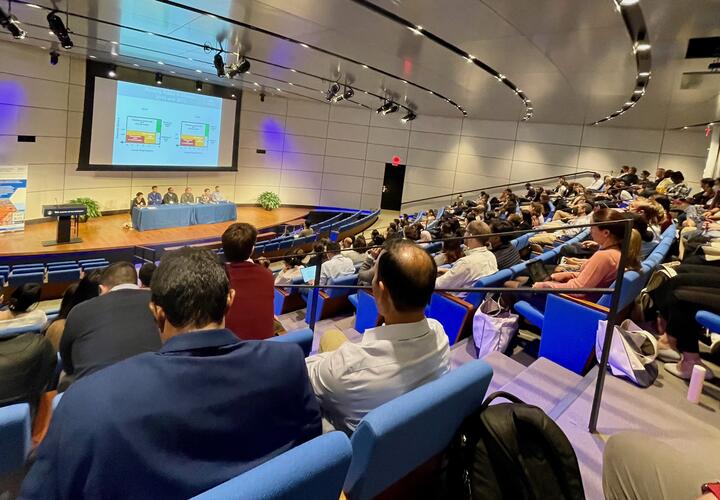
A tradition of working with our fellow institutions
Collaborations between universities hold promise for allowing development researchers to pool resources and compare findings. However, they are not always straightforward.
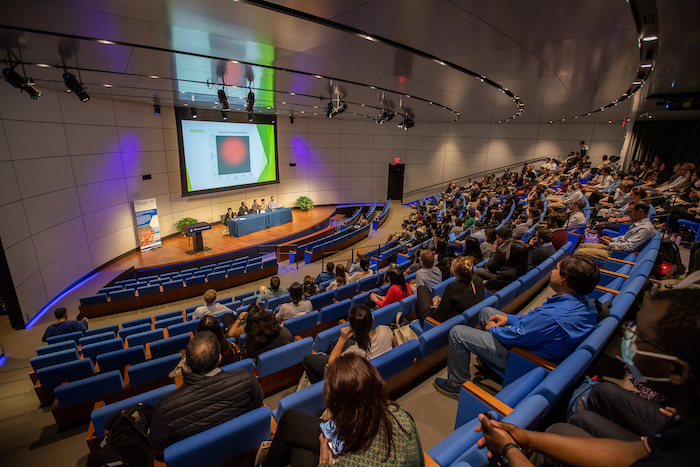
The plenary session featured a panel discussion of researchers from several institutions. Photo by Maher Mahmood.
In the late 1950s, Simon Kuznets and others conceived of a cross-university consortium dedicated to the quantitative study of economic growth. When it came down to it, organizing such a decentralized network of researchers presented challenges, and since it was Yale’s Lloyd Reynolds who had lobbied for seed funding from the Ford Foundation, the group decided to base the center at Yale in 1961.
Since then, EGC has served as a regular meeting place for development forums, with The North East Universities Development Consortium (NEUDC) as a prominent example. Robert Evenson’s introduction to the 1999/2000 Annual Report noted that Yale’s hosting of NEUDC 1997 coincided with Chris Udry’s appointment, and both reflected a renewed interest in development after a period of lower activity (at Yale).
This year, we were pleased to host NEUDC for its first in-person gathering since 2019. We welcomed 250 participants who presented 134 papers across 35 panel sessions, November 5 and 6. On our website you can explore research from the conference: a review by David Evans of the Center for Global Development (CGD) and Almedina Music of the World Bank covers the papers presented; a video of the plenary panel discussion presents panel datasets available to researchers; and a recap article by Yale PhD student J Stallman summarizes takeaways from 2022 and looks forward to 2023, when Harvard’s Asim Ijaz Khwaja and Melissa Dell will be co-organizers. As Asim says, “NEUDC always remains one of the most inclusive and embracing of all development conferences.”
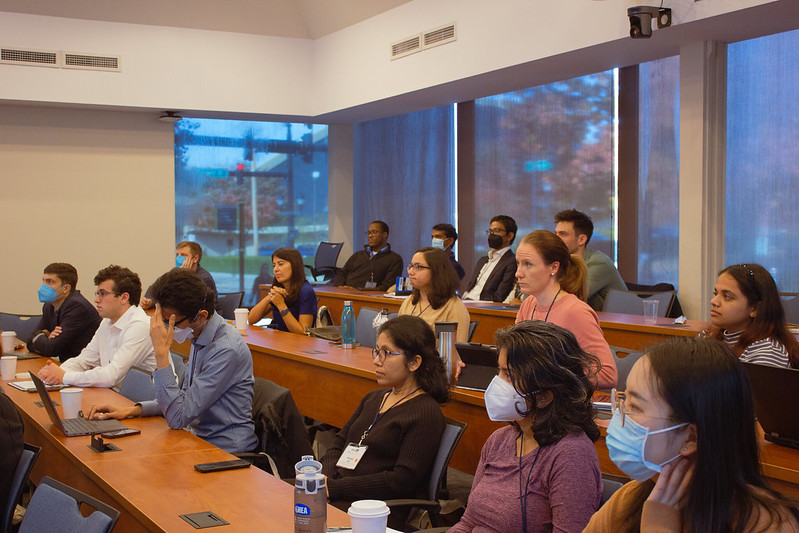
Research presentations took place at the Watson Center on Yale campus. Photo by Rada Pavlova.
Another forum hosted by EGC is the Kuznets Memorial Lecture: an annual event held since 1987 featuring a prominent economist speaking on issues in economic development. We are pleased to announce that Eliana La Ferrara of Harvard University will deliver the 32nd Kuznets Lecture, “Changing Harmful Norms” on March 2, 2023. La Ferrara's talk will be followed by a mini-conference, "Norms, Gender and Development" on Friday March 3, 2023 which will showcase cutting-edge research by early-career researchers on topics covered in the lecture.
Starting with the 2022-23 academic year, we have expanded the Kuznets program to bring short-term visitors to contribute to the development economics community at Yale. You can read about the visitors we hosted this fall and our plans for the spring on our website. We welcome applications for this program: details can be found on the same webpage.
Wishing you the best for the holiday season and a happy new year,

Rohini Pande
Henry J. Heinz II Professor of Economics
Director, Economic Growth Center
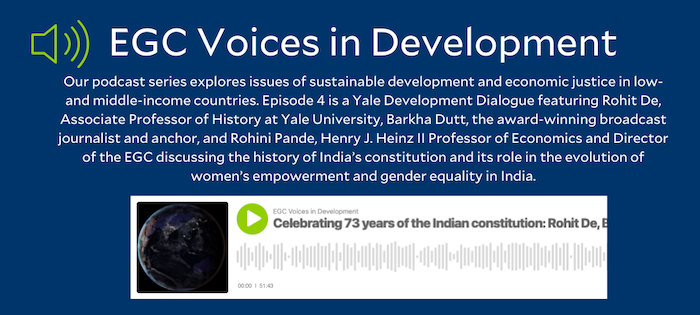
Congratulations to the 2022-23 Sylff Fellows!
The Annual Ryoichi Sasakawa Young Leaders Fellowship Fund (Sylff) fellowship awards recognize outstanding economics PhD students in development economics and trade at Yale. Read about the 2022-23 Sylff fellows and their research.
EGC Affiliate Spotlights
Amit Khandelwal

Years after receiving his PhD at Yale, Khandelwal has returned as the Dong-Soo Hahn Professor of Global Affairs and Economics, and is studying how the US-China trade war is affecting trade in lower-income countries.
Antonella Bancalari
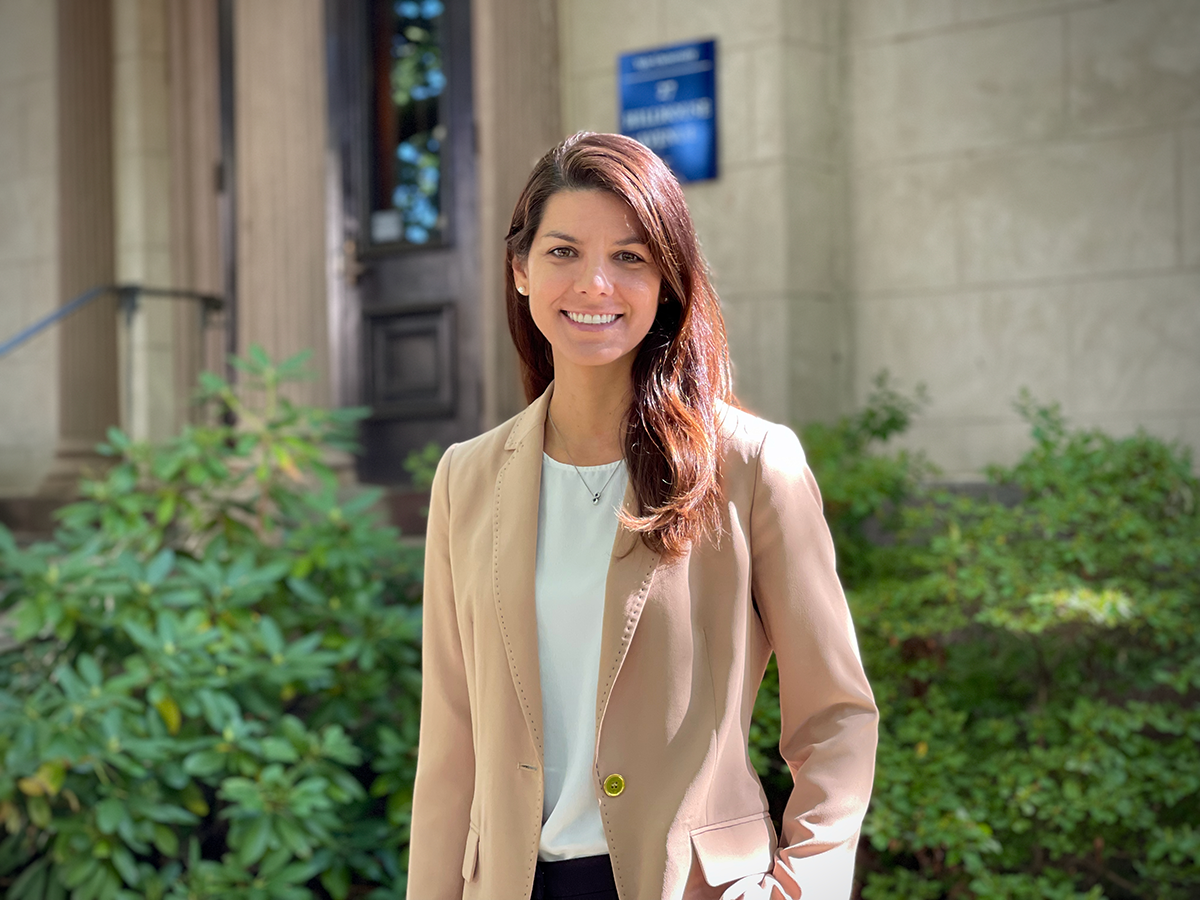
The EGC Visiting Scholar is conducting groundbreaking research on the relationships between citizens and the state, including an analysis that exposes the unintended social costs of infrastructure projects in Peru.
Recent Publications
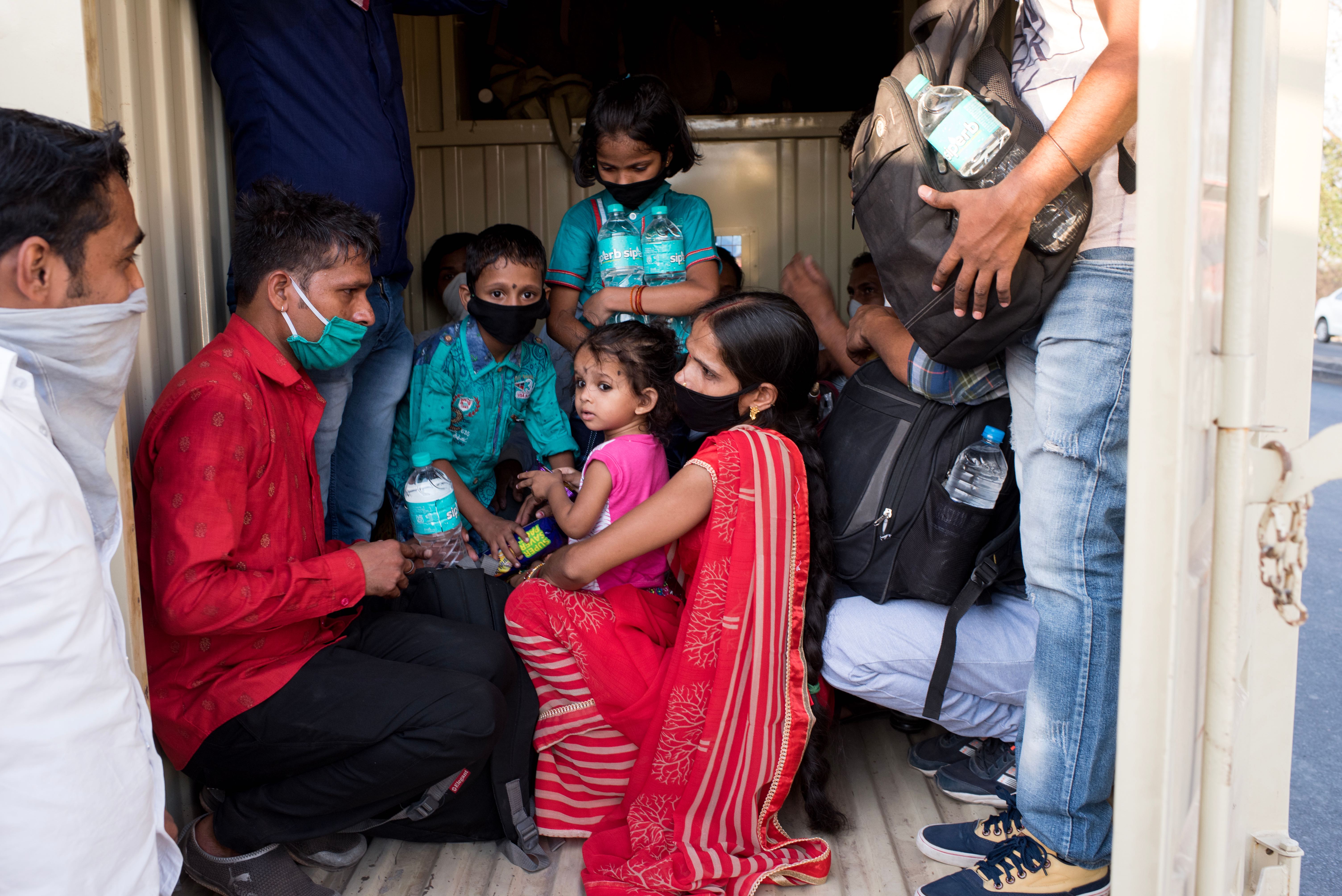
Diana Van Patten analyzes the historical effects of international trade on human capital in Costa Rica; José-Antonio Espín-Sánchez uses data to understand the effects of migration and the slave trade in Latin America; and Inclusion Economics researchers use surveys to understand the effects of Covid on India’s “invisible workforce”.